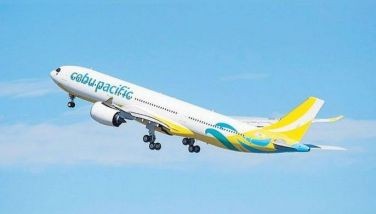WB okays additional $59.1 million for RP

MANILA, Philippines – The World Bank’s Board of Executive Directors yesterday approved additional financing of $59.1 million for the Philippines to expand a development project of the government.
Dubbed as the Kapitbisig Laban sa Kahirapan-Comprehensive and Integrated Delivery of Social Services (KALAHI-CIDSS) Project, this empowers local communities in targeted poor areas to achieve improved access to basic public services and to participate in more inclusive local planning and budgeting.
Social Welfare Secretary Corazon Juliano-Soliman welcomed the approval of additional financing for the KALAHI-CIDSS project, saying that this is in line with the administration’s programs.
“KALAHI-CIDSS trains villagers in project planning, technical design, financial management and procurement, thus building a cadre of future capable leaders at the local level. It gives poor people a voice in the development process as they learn how to engage their local governments more effectively in requesting funding and other support to help address local development priorities,” she said.
She added that when local residents come together to discuss their own problems and find solutions to these common challenges, programs and projects are sustained and implemented effectively and in the most transparent manner.
Using a community-driven development (CDD) approach, the KALAHI-CIDSS helps poor communities develop the necessary skills and provides them with resources to select, implement, and sustain small-scale community infrastructure projects and social services.
Implemented by the Department of Social Welfare and Development (DSWD) since December 2002, the original KALAHI-CIDSS project has benefitted 1.1 million households in 4,229 barangays (villages), covering 184 municipalities in the country’s 42 poorest provinces.
It has financed 5,326 community sub-projects including basic social services facilities, such as water systems, school buildings, health and day care centers; access roads and small bridges; and environmental and disaster control infrastructure.
The additional financing will expand the Project’s reach to a total of 220 municipalities that have a poverty incidence of 50 percent or greater, within the provinces already covered.
The additional financing supports two enhanced implementation modalities including a local government unit (LGU)-led Community Driven Development (CDD) approach that would support a more devolved, cost-effective implementation, and give greater responsibility and authority to municipalities over program implementation while retaining the DSWD’s monitoring and oversight functions and the piloting of the KALAHI-CIDSS in eight selected urban poor communities, which would respond to their specific concerns, such as land tenure, housing, resettlement, livelihoods, urban sanitation, and other environmental issues.
World Bank Country Director Bert Hofman said that the proposed activities in the additional financing are fully consistent with the Washington-based multilateral agency’s Assistance Strategy for 2010 to 2012.
“The Project fully supports the overall objective of making growth work for the poor by improving the delivery of basic public services to poor areas, as well as enhancing transparency and accountability at the local level,” Hofman said.
- Latest
- Trending

























